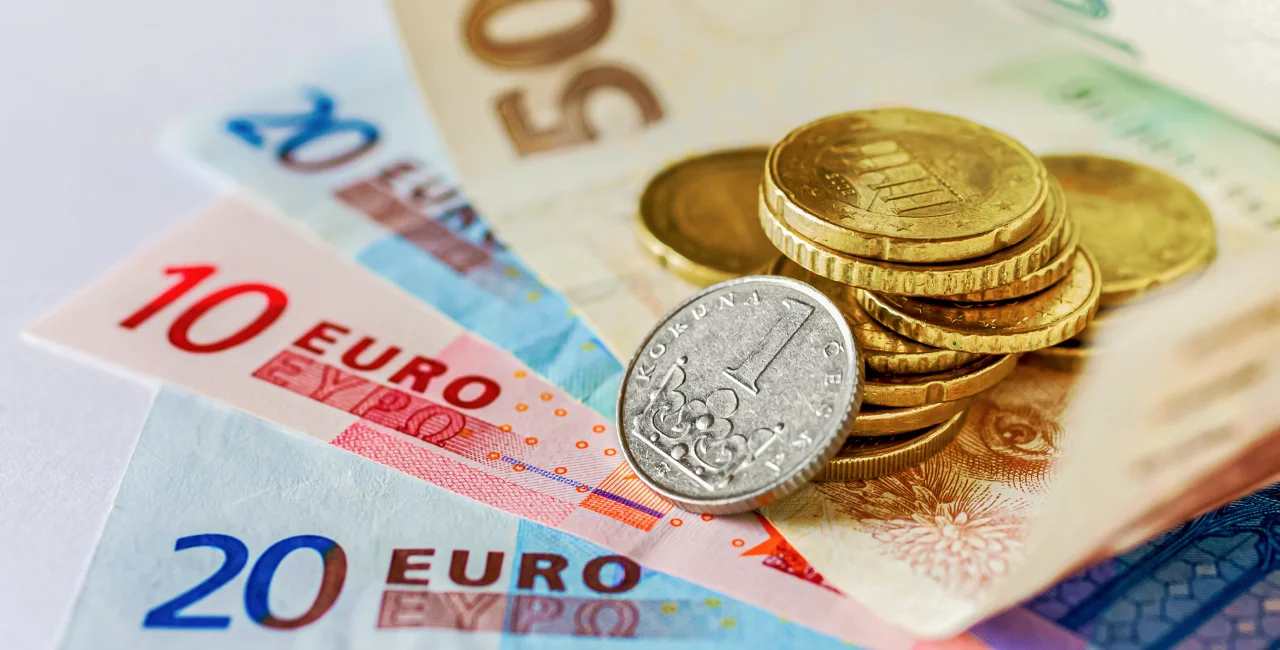A senior Czech cabinet minister has urged the government to decide on adopting the euro at the beginning of the election period—in 2025—citing the need for political agreement and public support. The call comes as the National Economic Council of the Government (NERV) presented its analysis of the advantages and disadvantages of joining the eurozone, which the government reviewed last week.
According to Minister of Agriculture Marek Výborný: "It is essential that the government decides…so that it can bring the process to an end during its term of office." He emphasized that elementary political agreement and significant public support are necessary for the decision. The minister, however, did not confirm whether the commitment to adopt the euro would be part of the Spolu (Together) coalition's election program for the parliamentary elections next year.
PARTNER ARTICLE
Senior ministers disagree over whether the euro is the right choice for Czechia. Transport Minister Martin Kupka cautioned that adopting the euro alone would not guarantee economic growth, stressing the need for other instruments to support the economy. He identified reducing the budget deficit as a key area to focus on.
Both ministers highlighted NERV's recommendation to shorten the transition period before adopting the euro, warning that long-term action in the ERM II exchange rate mechanism would have negative effects on the Czech economy. Výborný also emphasized the need for the Czech Republic to negotiate exemptions from joining the banking union during eurozone talks.
The Czech Republic committed to joining the eurozone when it joined the EU in 2004, but it has yet to meet the necessary criteria, including low inflation and low interest rates on government bonds, and maintaining a deficit of public finances below 3 percent of GDP. These requirements are known as the Maastricht criteria.
FOUR ELEMENTS OF THE MAASTRICHT CRITERIA
- Price stability: The country's inflation rate must not exceed by more than 1.5 percentage points the average inflation rate of the three eurozone countries with the lowest price growth.
- Long-term interest rate: The long-term interest rate is no more than 2 percentage points above the average of the three eurozone countries with the lowest inflation.
- Public finance: The budget deficit can’t exceed 3 percent of GDP and the debt ratio can’t be higher than 60 percent of GDP.
- Exchange-rate stability: The country must spend two years in the revised European Exchange Rate Mechanism (ERM II).
The top of Czech politics doesn’t have a unified line on euro adoption. Prime Minister Petr Fiala, historically lukewarm about the single currency, stated earlier this year that Czechia’s adoption of the euro is definitively off the table at least until the country’s next general election, which will come around October 2025.
On the other hand, President Petr Pavel is a vocal supporter of adopting the euro. In his New Year's speech, he stated that a common currency is the logical future and urged the Czech Republic to take the necessary steps towards joining the eurozone.
In July 2023, Minister of Labor Marian Jurečka backed euro adoption and told the media that Czechia would fulfill the Maastricht criteria "by the end of the decade."













 Reading time: 2 minutes
Reading time: 2 minutes 























